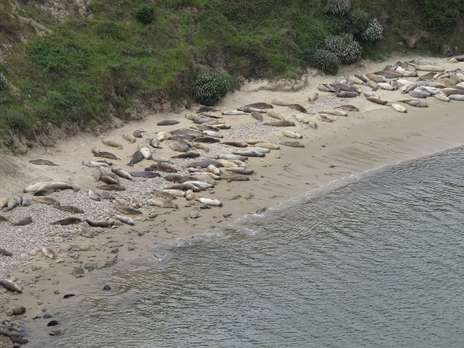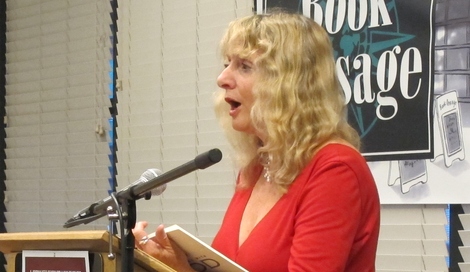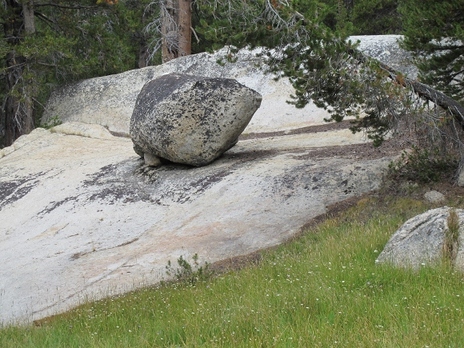Some people go looking for God in the great outdoors. If you drop them in a kelp bed off the coast of California or on a high mountain trail fragrant with pine duff, an ineffable sense of connectedness to all things soars up in them.
Humans beings like Nature. From a colony of elephant seals lolling on a Mexican beach to a winter snowstorm in the Midwest or a galaxy in far-off space, humans love Nature.
But does Mother Nature give darn about humans?
It was Nature, after all, that dispatched a massive landslide recently to Guatemala, where more than 270 are dead and more still missing. Also floods to the Carolinas, where a score lost their lives and hundreds of roads and bridges were closed.
And it was Nature that brought down a mass of mud and rock on the village of Abi Barak in Afghanistan last year. There, more than 2,000 human beings perished in that single act of -- Nature. And when Nature unleashed a 9.0 magnitude earthquake and tsunami in Japan a few years ago, the death toll was nearly 16,000.
I have my own fond thoughts about nature -- of driving across the San Francisco Bay to Mount Tamalpais to hike in the shade of ancient oaks and stalwart redwood trees, the Pacific ocean glimmering in the distance.
For many of the folks I interviewed for my book, Wrestling with God: Stories of Doubt and Faith, nature is a benevolent, nurturing presence. They talked about sensing a deep kinship with the natural world. Cerridwen Fallingstar, a Shamanic priestess and teacher in San Geroninmo, California, expressed it this way: "Being outdoors, that's where I feel the connection with whatever you want to call it -- God or Goddess or "the force that through the green fuse drives the flower," That force, that power, that beautiful connection, mostly I get it from being in nature."
But not everyone I talked to for Wrestling with God was so sanguine about the nature of Nature. Pediatric pathologist Geoff Machin had this to say about nature:
Many of us cling to a pre-Darwinian, eighteenth- and nineteenth-century concept of the natural world that says, "Isn't nature beautiful? Look out there, look at the sun on those trees, look at the green against the blue sky, look at the red of that plum tree. Beautiful! And, look, there's a squirrel."
I call this concept the romantic model. What the romantic model doesn't tell you is that the squirrel is flea-ridden and has intestinal parasites. It's got chronic diarrhea from the parasites and it's scratching itself all the time because of the fleas.
Every tree, every animal, every bacterium and every virus on earth is locked in a deadly struggle with every other individual -- within the species and across the species... Anything that doesn't compete goes to the wall and dies.
Geoff's right. The truth is, Nature is not nice. It is fierce. It does what it's going to do. Cyclones, mudslides, earthquakes, tsunamis. Also, stillbirths and slow death by cancer.
"Nature doesn't care one whit about us," Alan Lightman, author of The Accidental Universe, wrote recently in The New York Times. "Nature, in fact, is mindless. Nature is neither friend nor foe, neither malevolent nor benevolent. Nature is purposeless."
Not only that, Lightman asserts, life in general and human life in particular is inconsequential in the cosmic scheme of things. The results of the Kepler spacecraft's search for signs of potential life in the universe suggest that a mere one millionth of one billionth of one percent of the visible universe exists in living form. We and our plant and animal kin just don't count for much.
"We may find nature beautiful or terrible," writes Lightman. "But those feelings are human constructions."
So -- which is it? Is nature a friend as Cerrildwin suggests? Cruel as Geoff asserts? Or has Lightman got it right -- nature is indifferent?
I'm going to go with indifferent.
But that doesn't mean that I'm not going to hike Mt. Tamalpais every chance I get. Breathe the chaparral scented air. Close my eyes and let the soft wind coming in off the Pacific soothe my soul.
My soul -- or whatever it is that makes me want to put on my hiking boots and feel that glorious mountain under my feet.
2015 Barbara Falconer Newhall. All rights reserved.
An earlier version of this essay appeared on BarbaraFalconerNewhall.com. If this story resonates for you, check out The Creeds: Do Christians Have to Believe All That Stuff? Also, Point-and-Shoot Heaven: A Minnesota Garden at Dusk.
Barbara Falconer Newhall is the author of "Wrestling with God: Stories of Doubt and Faith," new from Patheos Press.



